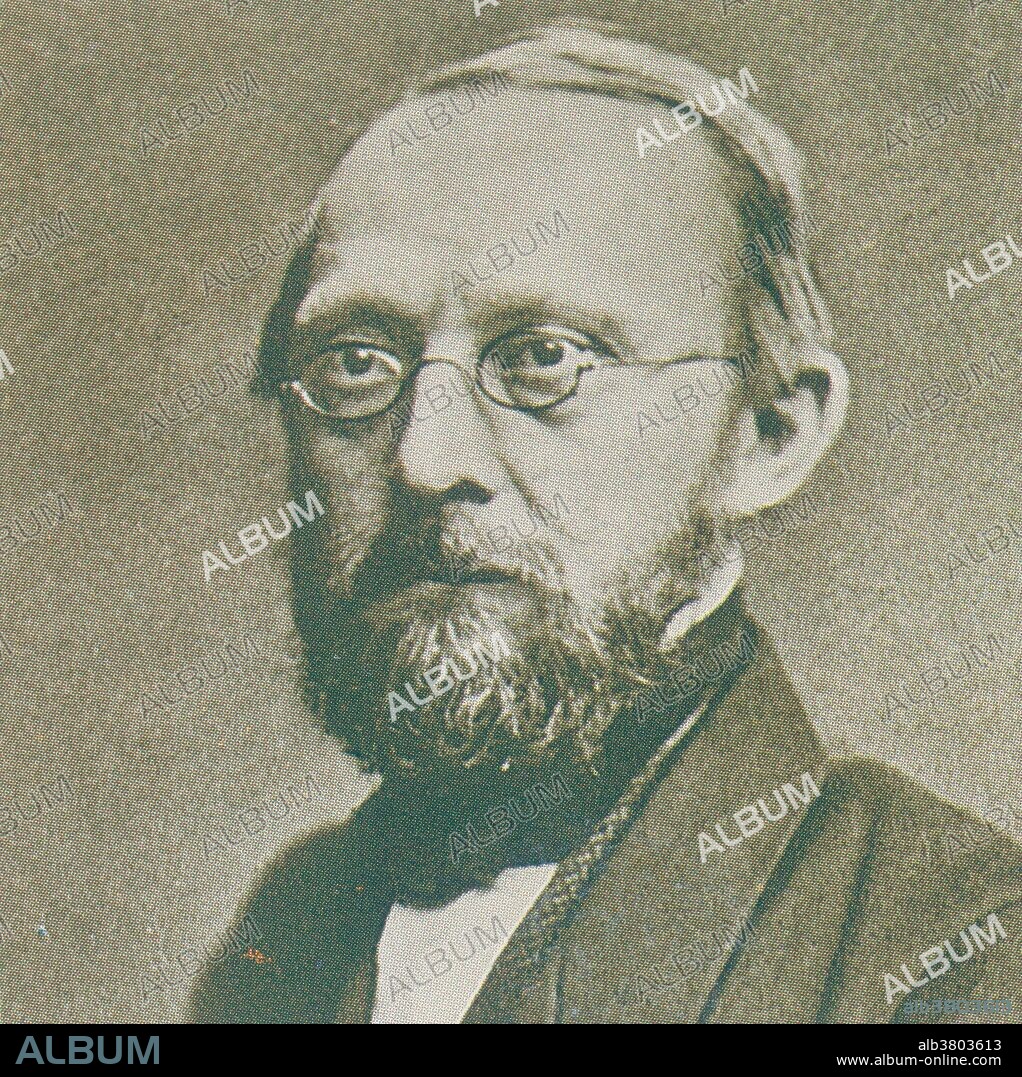alb3803613
Rudolph Virchow, German Polymath

|
Ajouter à une autre Lightbox |
|
Ajouter à une autre Lightbox |



Avez-vous déjà un compte? S'identifier
Vous n'avez pas de compte ? S'inscrire
Acheter cette image

Titre:
Rudolph Virchow, German Polymath
Légende:
Voir la traduction automatique
Rudolph Carl Virchow (October 13, 1821 - September 5, 1902) was a German doctor, anthropologist, pathologist, prehistorian, biologist and politician, public health advocate. Referred to as "the father of modern pathology," he is considered one of the founders of social medicine. His most widely known scientific contribution is his cell theory, which built on the work of Theodor Schwann. He is cited as the first to recognize leukemia cells. Another significant credit relates to the discovery, made simultaneously by Virchow and Charles Troisier, that an enlarged left supra-clavicular node is one of the earliest signs of gastrointestinal malignancy. He described the factors contributing to venous thrombosis and coined the term embolism. He founded the medical fields of cellular pathology and comparative pathology. In response to a lack of standardization of autopsy procedures, he established and published specific autopsy protocols. Virchow was an advocate for social and political reform stating, "The physicians are the natural attorneys of the poor, and social problems fall to a large extent within their jurisdiction." He died of heart failure in 1902 at the age of 80.
Crédit:
Album / Science Source / New York Public Library
Autorisations:
Modèle: Non - Propriété: Non
Questions sur les droits?
Questions sur les droits?
Taille de l'image:
3192 x 3198 px | 29.2 MB
Taille d'impression:
27.0 x 27.1 cm | 10.6 x 10.7 in (300 dpi)
Mots clés:
ALLEMAND • ALLEMANDE • CÉLÈBRE • CELEBRITE • EUROPÉEN • HOMME • ILLUSTRATION • PATHOLOGIE • PERSONNAGES • PERSONNALITÉS • PERSONNE • PORTAIT • PORTRAIT • POTRAIT • XXE SIECLE
 Pinterest
Pinterest Twitter
Twitter Facebook
Facebook Copier le lien
Copier le lien Email
Email
